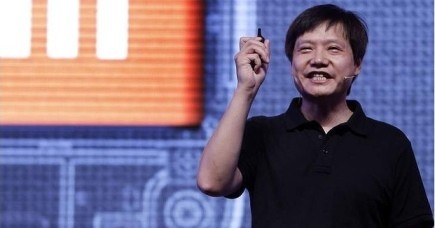China’s smartphone maker Xiaomi has turned into a successful world enterprise that has revolutionized the market for “made in China” products that may be attributed to founder Lei Jun’s patriotism, according to an article by the China Daily.
The report said that even the company's name was inspired by Mao Zedong's phrase and Lei often quotes Mao at meetings. The company recently made headlines by establishing a branch of the Communist Party.
According to the report, the company's market value reached $45 billion by the end of 2014, outsmarting rivals Huawei and Lenovo to top the Chinese market, and now becomes the world's third largest smartphone manufacturer after Apple and Samsung.
Lei, who graced the pages of the Wall Street Journal, Time and Forbes, has also created a role model for other Chinese firms.
The Xiaomi founder has also popularized the use of mobile Internet. The report said that by June this year, 668 million Chinese were online, half of the country's population, and mobile phone Web users have grown to 594 million.
Since Xiaomi launched its first handset with its Android-based mobile operating system and text and voice messaging service similar to WeChat, it has sold a record of 2.12 million smartphones.
In foreign markets, the company repeated its success in Brazil and Southeast Asia, getting 1.5 percent of the market and selling more than 800,000 units.
Business insiders said that Xiaomi's popularity can be attributed to its experience of developing countries, where the huge middle- and low-end markets are consistent with Xiaomi's products.
However, Xiaomi has been questioned for violations of patent infringement and intellectual property issues. The sale of Xiaomi smartphone in India was reportedly banned after Sweden's Ericsson won a court order after claiming of patent infringement in December.
But Hugo Barra, vice president of Xiaomi in charge of India, said that it has applied for 2,600 patents worldwide to build its portfolio of patents and defend itself.
Lei said that Xiaomi is planning to invest more in research and development and have more patents in the next decade.






















